Did the Supreme Court really set back America's climate change fight?
The sharpest opinions on the debate from around the web

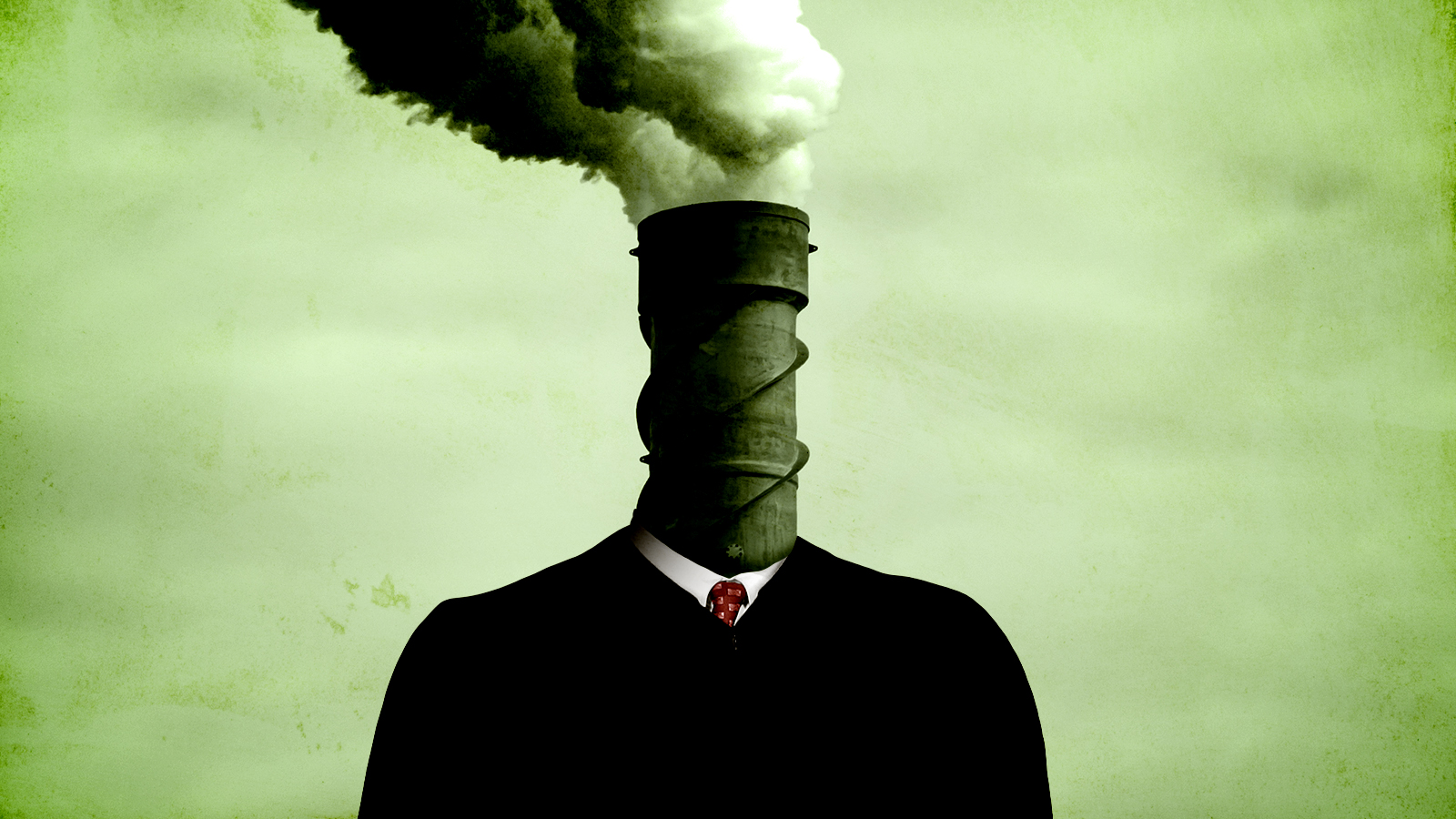
A free daily email with the biggest news stories of the day – and the best features from TheWeek.com
You are now subscribed
Your newsletter sign-up was successful
At the tail end of a turbulent Supreme Court term in which the newly emboldened conservative majority expanded gun rights and shrank abortion rights, among other big changes, the court's six conservatives used a novel legal idea, the "major questions doctrine," to constrict the Environmental Protection Agency's ability to regulate climate pollution by power plants.
The ruling in West Virginia v. EPA, and the threat of similar judgments in the future, greatly complicate U.S. efforts to slash greenhouse gas emissions, as President Biden has pledged to do by 2035. "Our fight against climate change must carry forward, and it will," Biden said, without much elaboration. How badly did the Supreme Court set back America's climate campaign?
This is a huge problem
Climate change is "the most pressing environmental challenge of our time," and the Supreme Court improperly overrode the legislative branch and deprived "the EPA of the power needed — and the power granted — to curb the emission of greenhouse gases," Justice Elena Kagan wrote in her dissent. "The court appoints itself — instead of Congress or the expert agency — the decision-maker on climate policy. I cannot think of many things more frightening."
The Week
Escape your echo chamber. Get the facts behind the news, plus analysis from multiple perspectives.

Sign up for The Week's Free Newsletters
From our morning news briefing to a weekly Good News Newsletter, get the best of The Week delivered directly to your inbox.
From our morning news briefing to a weekly Good News Newsletter, get the best of The Week delivered directly to your inbox.
The Supreme Court's ruling "is really, really big," agreed Loyola University New Orleans law professor Karen Sokol. The court's 6-3 conservative majority was put in place "by corporate power, including fossil fuel industry power," and "in West Virginia v. EPA, these justices did what they were put on the court to do: seal in significant constitutional protections for corporate interests at the expense of the public — and, in the case of climate protection, the rest of the world."
It could have been worse
"We're not trying to sugarcoat the ruling, which will set back America's efforts to cut carbon pollution from the power sector," Maxine Joselow and Vanessa Montalbano write in The Washington Post. "But the decision did not go as far as many climate advocates had feared." Specifically, the court's conservatives "did not take away the EPA's ability to regulate greenhouse gases from power plants, vehicle tailpipes, or other major sources of planet-warming pollution."
"'We're only as screwed as we were yesterday' is not much of a comfort or a rallying cry," but the ruling isn't the "existential setback" some headlines made it out to be, David Wallace-Wells writes at The New York Times. "The effect is less like a nail in the coffin and more like putting an additional set of brakes on an already stalled project." Of course, "when it's all hands on deck, you don't want one hand tied behind your back," he adds, and "for the country's highest court to consider the urgent challenge of warming and say, in effect, that we should be doing less rather than more — whatever the immediate policy effect — comes as a profound psychological blow."
This may well backfire on conservatives
The Supreme Court's ruling "limits the EPA's ability to regulate climate change, but leaves enough room that the agency still must try to do so," Robinson Meyer writes at The Atlantic. "With these constraints, the court is forcing the agency to approach the problem of carbon pollution with brute-force tools. In short, the court has ensured that climate regulation, when it comes, will prove both more cumbersome and more expensive for almost everyone involved."
A free daily email with the biggest news stories of the day – and the best features from TheWeek.com
"The options that are left for EPA, ironically, could be more restrictive and more expensive for the power sector than the cap-and-trade approach that the Supreme Court said was clearly outside the agency's authority," Marianne Lavelle agrees at Inside Climate News. "In fact, the power industry intervened in the West Virginia case, filing an amicus brief and delivering oral arguments in support of EPA's authority to take a more flexible approach to drive the electric system to clean energy."
Don't forget, "the biggest threat to corporate futures today" is not regulation but "an out-of-control climate that will undercut financial stability," Bill McKibben writes at The New Yorker. But as this "nihilist" ruling shows, "the conservative drive to roll back federal power has long since become more ideological than practical."
The Supreme Court is grabbing power, not just energy policy
"The decision will likely limit the EPA's authority to address climate change across the board," using "a legal rule of its own invention that defies the intent of Congress," Blake Emerson writes at Slate. And that points to a broader problem with the court's big power grab: "In the constitutional crisis we are entering, the court combines all three powers — legislative, executive, and judicial — to limit the scope of federal power," he argues. As even Chief Justice John Roberts has noted, "such a combination of powers creates the risk of tyranny."
The Supreme Court isn't the only problem
"Climate change is already doing immense damage," and "I have a suspicion that at least some of the Republican justices understood the enormity of what they were doing and tried to do as little as possible while maintaining their party fealty," Paul Krugman argues at the Times. "For party fealty is, of course, what this is all about," and "partisanship is the central problem of climate policy."
It's true that Sen. Joe Manchin (D-W.Va.) "stands in the way of advancing the Biden climate agenda," Krugman writes. "But if there were even a handful of Republican senators willing to support climate action, Manchin wouldn't matter, and neither would the Supreme Court." Congress could fix this with "simple legislation," he adds. " So ultimately our paralysis in the face of what looks more and more like a looming apocalypse comes down to the GOP's adamant opposition to any kind of action."
"In the '70s and '80s, Congress was passing major legislation all the time," Notre Dame law professor Bruce Huber tells the Times. "The court would say, 'Hey, this doesn't stand up to scrutiny.' And Congress would come back and say: 'You're right. We'll fix it.' And the very next session, you'd get a major amendment to the Clean Air Act or the Clean Water Act." Today, "if we had a Congress that at all reflected what the median American voter wanted," he said, "we'd have relatively aggressive climate action."
The Supreme Court didn't make Congress dysfunctional
"This ruling in favor of West Virginia will stop unelected bureaucrats in Washington, D.C. from being able to unilaterally decarbonize our economy just because they feel like it," West Virginia Gov. Jim Justice (R) said. "People like to say 'D.C. has too much power.' They're right," he added. "For too long, our federal bureaucracy has had almost unlimited, unchecked power over us with little accountability to the public. Agencies shouldn't get to make unilateral decisions affecting all of our lives without Congress's vote."
"All y'all bitching about the Supreme Court can go to hell," RedState's Erick Erickson tweeted at Democrats. "We've spent 50 years watching them give you every damn thing you wanted and repeatedly stopping us even though we operated democratically. Now you don't have them and let your persuasion skills atrophy. Screw you." Winning the court "took us 49 years," he argued. "We literally got here because our side worked through democracy. You guys relied on 5 life tenured men in robes. Spare me your outrage about the end of democracy."
The market is trumping politics
Regardless of the Supreme Court's ruling and congressional inaction, "the United States is moving away from coal," the Post's Joselow and Montalbano note. Coal production shrank 35 percent between 2015 and 2021, and coal-fired power plants keep closing down, The never-enacted Obama-era Clean Power Plan the court blocked last week "was supposed to shrink coal's share of U.S. power generation to 27 percent by 2030; instead it fell to 21.8 percent last year," they report, citing the Environmental Integrity Project.
With Congress AWOL and the Supreme Court shielded from public accountability, "Wall Street may be the only other actor large enough to actually shift the momentum of our climate system," McKibben writes at The New Yorker. "The pressure on banks, asset managers, and insurance companies will increase precisely because the court has wrenched shut this other spigot. Convincing banks to stop funding Big Oil is probably not the most efficient way to tackle the climate crisis, but, in a country where democratic political options are effectively closed off, it may be the only path left."
Peter has worked as a news and culture writer and editor at The Week since the site's launch in 2008. He covers politics, world affairs, religion and cultural currents. His journalism career began as a copy editor at a financial newswire and has included editorial positions at The New York Times Magazine, Facts on File, and Oregon State University.
-
 5 cinematic cartoons about Bezos betting big on 'Melania'
5 cinematic cartoons about Bezos betting big on 'Melania'Cartoons Artists take on a girlboss, a fetching newspaper, and more
-
 The fall of the generals: China’s military purge
The fall of the generals: China’s military purgeIn the Spotlight Xi Jinping’s extraordinary removal of senior general proves that no-one is safe from anti-corruption drive that has investigated millions
-
 Why the Gorton and Denton by-election is a ‘Frankenstein’s monster’
Why the Gorton and Denton by-election is a ‘Frankenstein’s monster’Talking Point Reform and the Greens have the Labour seat in their sights, but the constituency’s complex demographics make messaging tricky
-
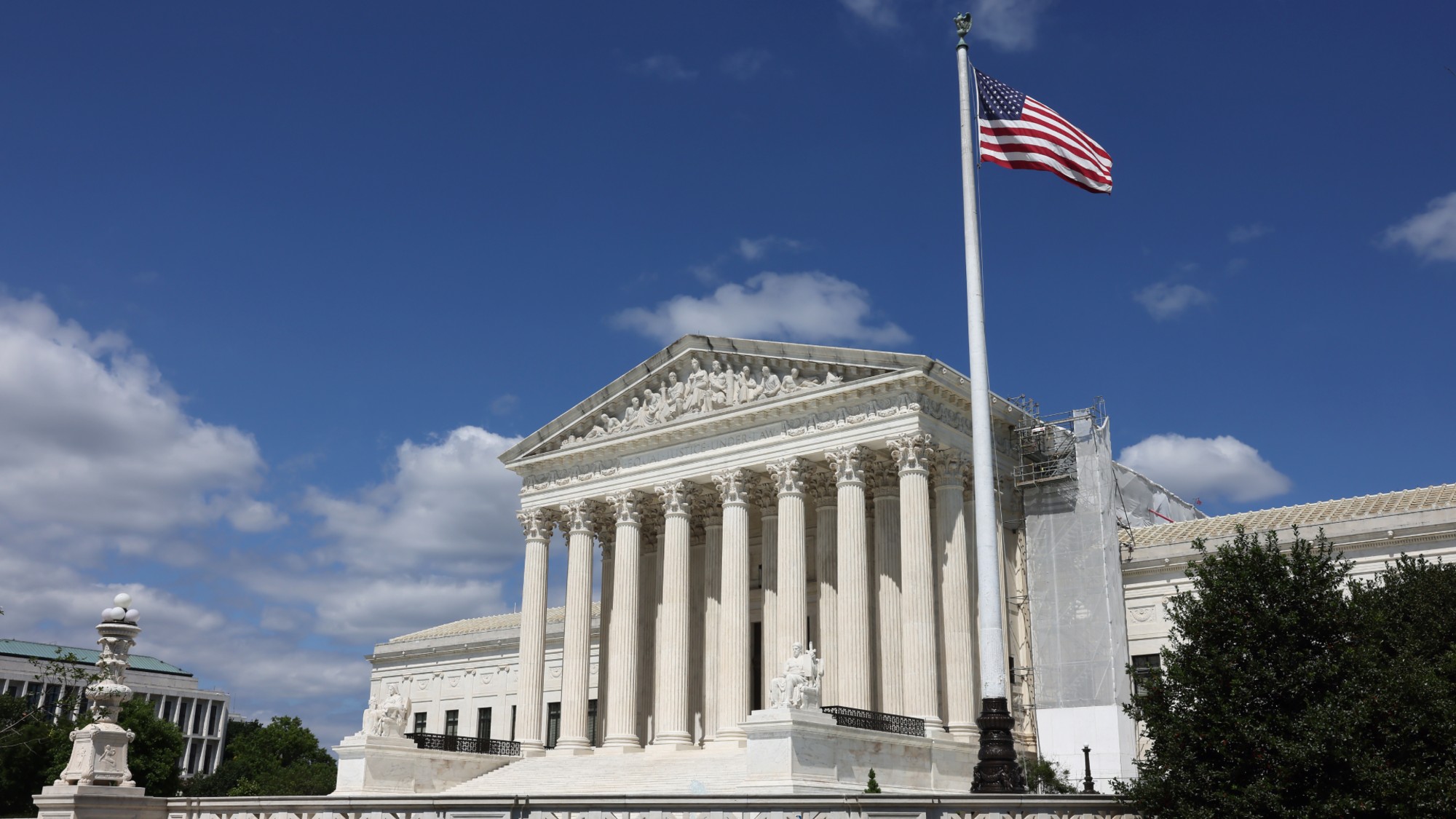 How far does religious freedom go in prison? The Supreme Court will decide.
How far does religious freedom go in prison? The Supreme Court will decide.The Explainer The plaintiff was allegedly forced to cut his hair, which he kept long for religious reasons
-
 The Supreme Court case that could forge a new path to sue the FBI
The Supreme Court case that could forge a new path to sue the FBIThe Explainer The case arose after the FBI admitted to raiding the wrong house in 2017
-
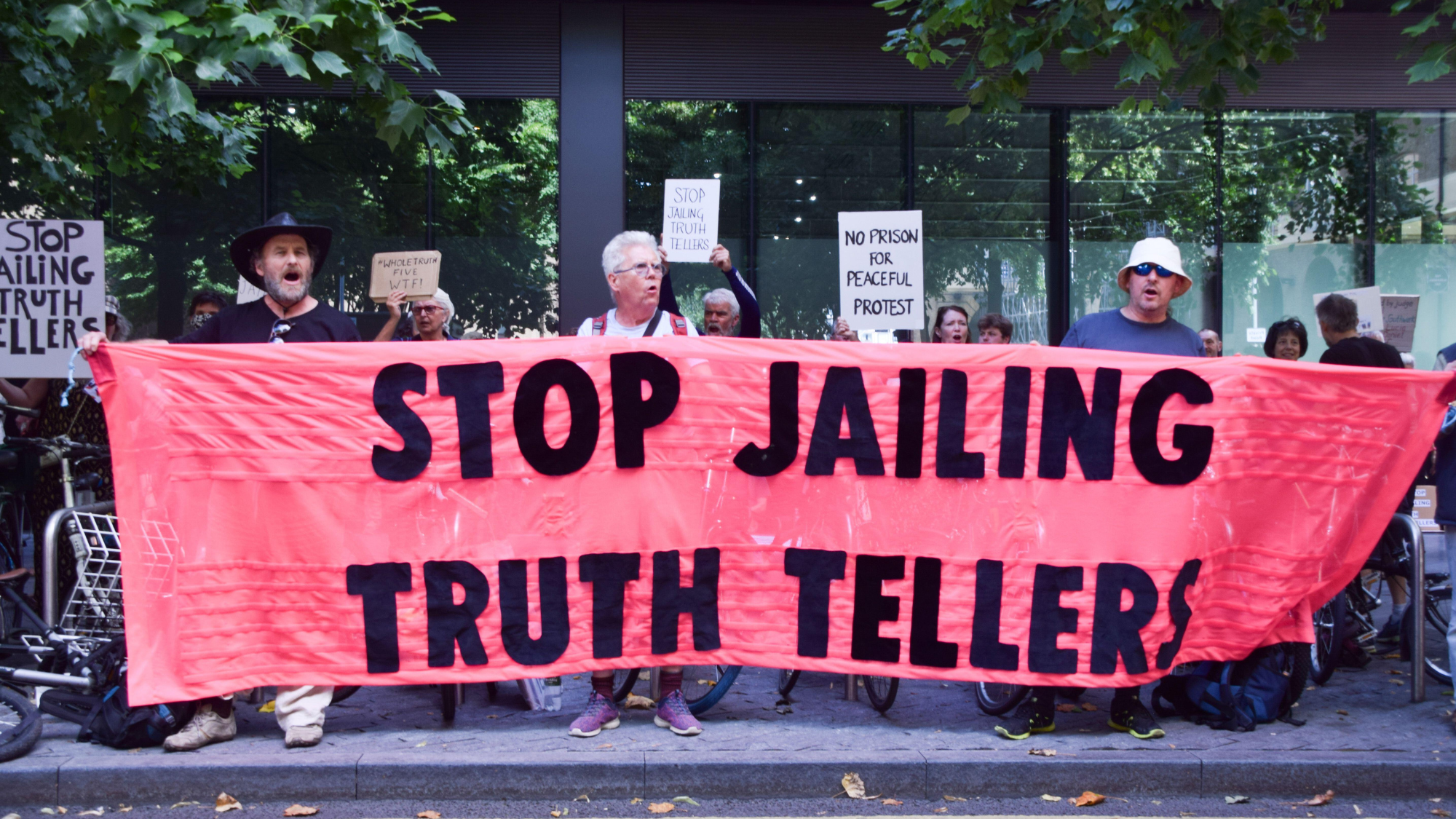 The Just Stop Oil five: 'fanatics' or victims of anti-protest authoritarianism?
The Just Stop Oil five: 'fanatics' or victims of anti-protest authoritarianism?In the Spotlight Climate protesters handed longest-ever prison sentences for peaceful protest
-
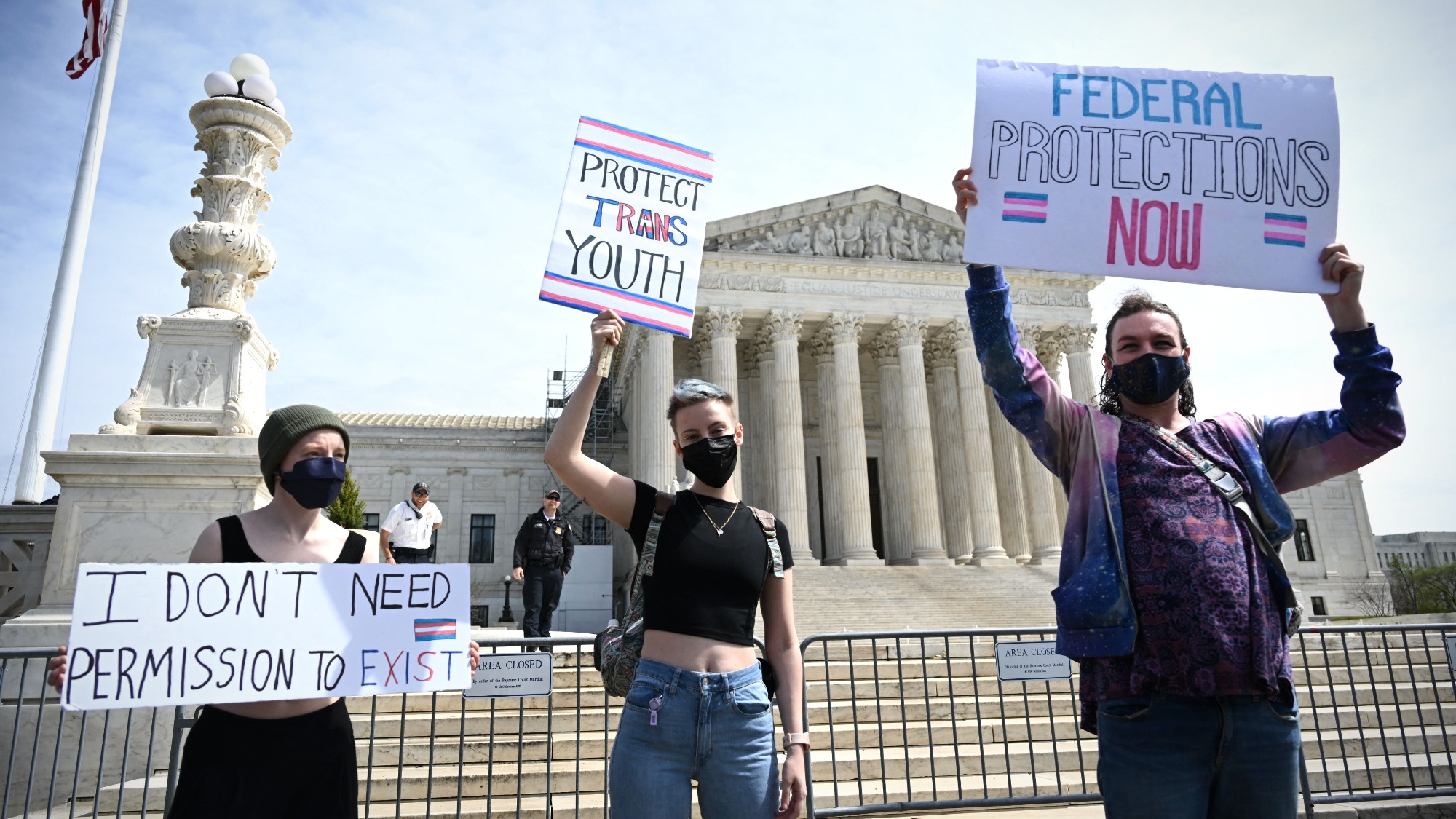 Supreme Court to weigh transgender care limits
Supreme Court to weigh transgender care limitsSpeed Read The case challenges a Tennessee law restricting care for trans minors
-
 Supreme Court wary of state social media regulations
Supreme Court wary of state social media regulationsSpeed Read A majority of justices appeared skeptical that Texas and Florida were lawfully protecting the free speech rights of users
-
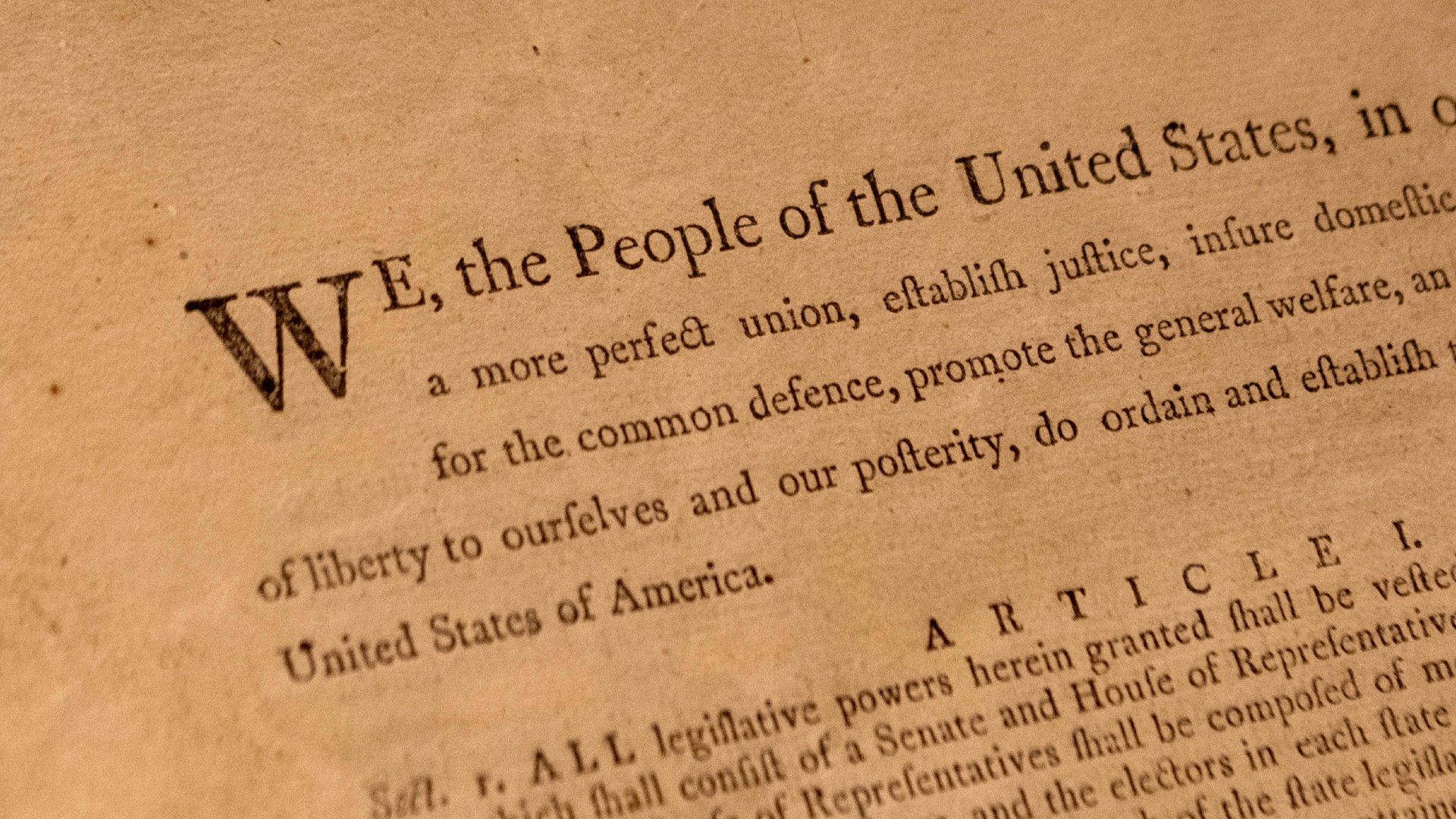 The pros and cons of a written constitution
The pros and cons of a written constitutionPros and Cons Clarity no substitute for flexibility, say defenders of Britain's unwritten rulebook
-
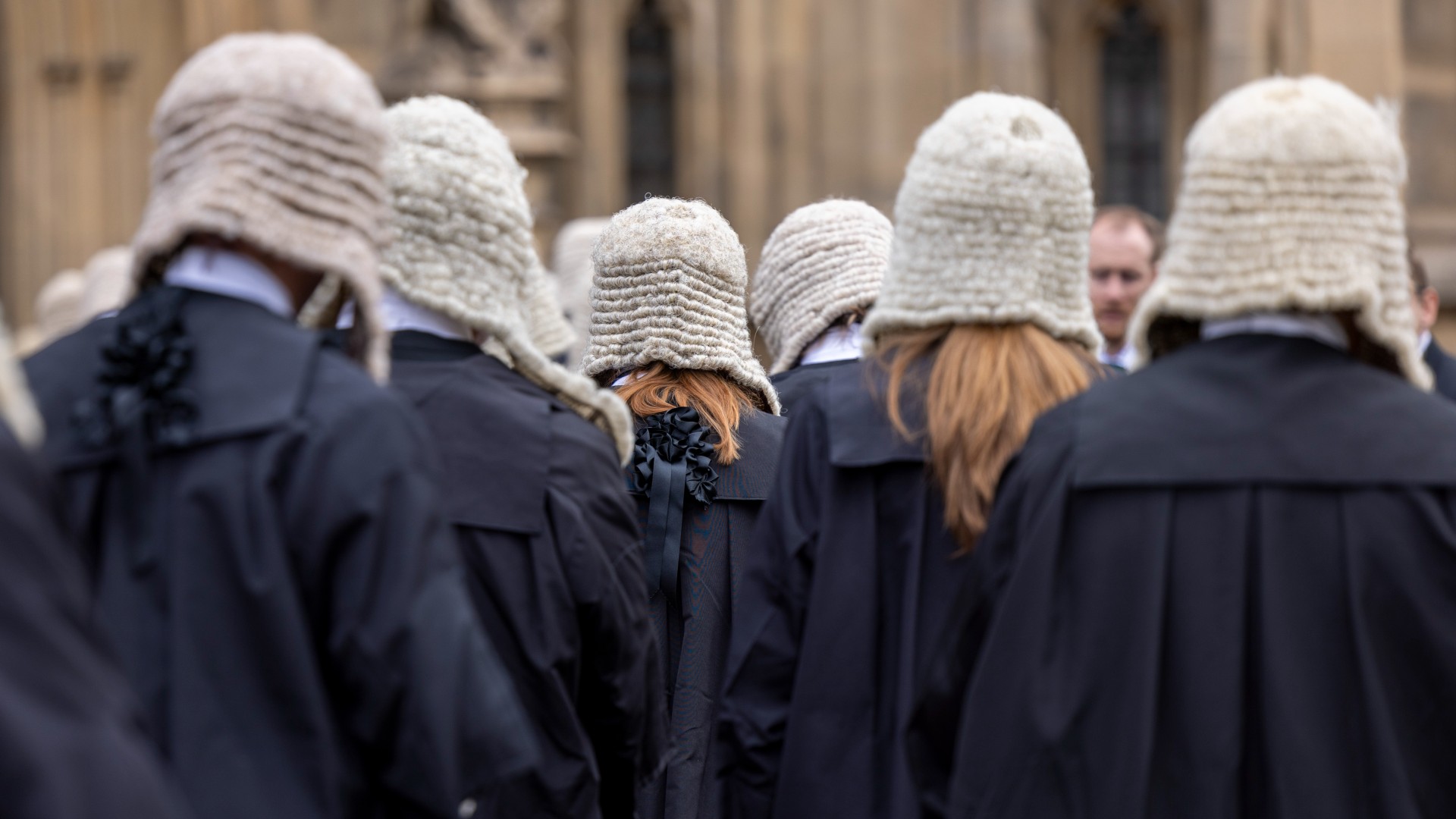 Judges allowed to use ChatGPT to write legal rulings
Judges allowed to use ChatGPT to write legal rulingsSpeed Read New guidance says AI useful for summarising text but must not be used to conduct research or legal analysis
-
 Pros and cons of the Rwanda deportation policy
Pros and cons of the Rwanda deportation policyPros and Cons Supporters claim it acts as a deterrent but others say it is illegal and not value for money
